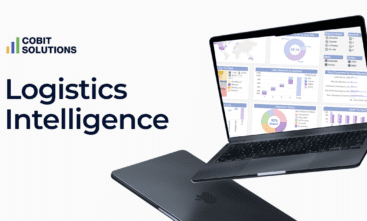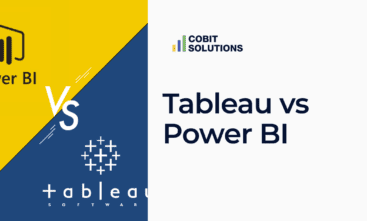After the start of business and growing it up we really want to manage it to the return of investments and success. The question arises how to measure success and adopt the results in strategic planning? To keep your fingers on the pulse of the most pivotal elements of a successful and implementable strategic plan you should track the performance metrics and vital KPIs for your business.
Easy to say but performance tracking can be hard enough for the newcomers. The matter is we can get many tricky metrics and KPIs, but which of them will show the way to your strategic plan fulfillment? From one side we live in the era of modern BI tools rise. So it looks like you may freely monitor any performance indicators. However, easy access to reports is not all for success. The problems arise with the question: what to analyze?

You can get multiple business data from several internal and external sources, so all this data needs to be filtered and sieved for the most relevant. Here we came to the difference of operational metrics vs kpi.
What’s the Difference: Metrics vs KPI
The companies think about their strategies, so they want to make lucrative and right decisions. To prioritize and measure the necessary data organizations use the term KPI (Key Performance Indicator). Though people often confuse it with term metrics. Key Performance Indicators help define your strategy and clear focus. While metrics are your helpers with business measures. They are helpful with the development and workflow tracking so can give a value.
Performance metrics vs KPI can’t help your organization with the critical measure you plan to achieve. This way you may state that KPI is a metric, but not every metric is a KPI.
Key Performance Indicators are meant to clearly articulate and provide insight into what the particular company needs to measure and achieve for the long-term objectives reaching.

It is worth mentioning that working strategic plans need around 5-7 clear KPIs to manage and track how you’re performing against your plan.
That’s why the masterpiece is in analyzing or calculating the necessary indexes of the most impact in moving your organization forward. To say in advance there are also complex indexes the companies track and need reports daily or more seldom.
To add pros for the metrics work they are tracking and providing data on your organization’s standard business processes. The cons are they don’t reflect important indexes you will need to measure, monitor, and follow for the progressive achievement of your strategic plan.
Example: business metrics vs KPIs
A good example of performance metrics vs kpi can be organic inbound website traffic. It is surely an important index to track the results which even feeds your strategy outcome. However it is not a KPI related to an outcome but just a valuable metric.
Sales growth metric like increasing sales in %, for example, will be important for management, sales, marketing, production or some other department and businesses. It will be useful to track it in each of departments to see the whole picture of the growth and understand their contributions to the general goal.
How can we choose the right KPIs? This most important stage demands time and should be renewed from time to time to follow strategies in an efficient way. There are some helpful KPI tracking techniques for your attention:
- SMARTER method defines the Specific, Measurable, Attainable, Relevant, Time-bound, Evaluate, and Reevaluate. Regard this list of requirements for your KPIs to match the purposes and be useful. The Key Performance Indicators should reflect realistic business data, plus they need to stay flexible according to the change of strategies.
- Six A’s technique includes Aligned, Attainable, Acute, Accurate, Actionable, Alive demands. These similar to SMARTER criterias will help to evaluate the relevance of indexes to become the KPIs for your company. They are helpful in cases when you have lots of indicators to narrow the list down to main.
Follow the methods mentioned above for choosing the KPIs to nearly 2-5 critical ones for each of your goals. It will keep your analysis process specific in order to leave all the misleading information away from the data you interpret.
The rule of thumb with KPIs is to always revisit your KPIs. It is necessary for the search for a better approach to strategic goals, developing your tracking of the right data. To monitor your KPIs regularly in one place with any devices use interactive Power BI dashboards. After the KPIs defined step, you can use the interactive reporting tool calculating all the information you need for strategic decisions and future long-term actions.
The team of seasoned professionals – Cobit Solutions helps businesses to organize their work and save time with our Dashboards. We create interactive reporting – dashboards of any complexity that work for all IT systems. We specialize in the top analytics platform Microsoft Power BI. Integration and automatic updating from API, ERP, CRM, databases, Excel and any IT systems.
Our breakthrough dashboards and BI solutions will let you:
- – control all aspects of the business here and now;
- – increase profits and revenues;
- – find points to reduce costs;
- – get clear numbers regarding who did a good job;
- – consolidate data from ERP, Excel, CRM, ERP into one panel.
Remember the key difference
A KPI and a performance metrics differ when it comes to both the creation and implementation of your strategic plan. Key Performance Indicators are meant to clearly articulate and provide insight into what the particular company needs to measure and achieve for the long-term objectives reaching. Remember that working strategic plans need around 5-7 clear KPIs to manage and track how you’re performing against your plan.
After the KPIs defined step you may order Business Intelligence & interactive reporting of any complexity from all IT systems to track the KPIs from any point in the world and devices with Internet.
You might also be interested to read how to track the main economic factors with BUSINESS INTELLIGENCE FOR INSURANCE



